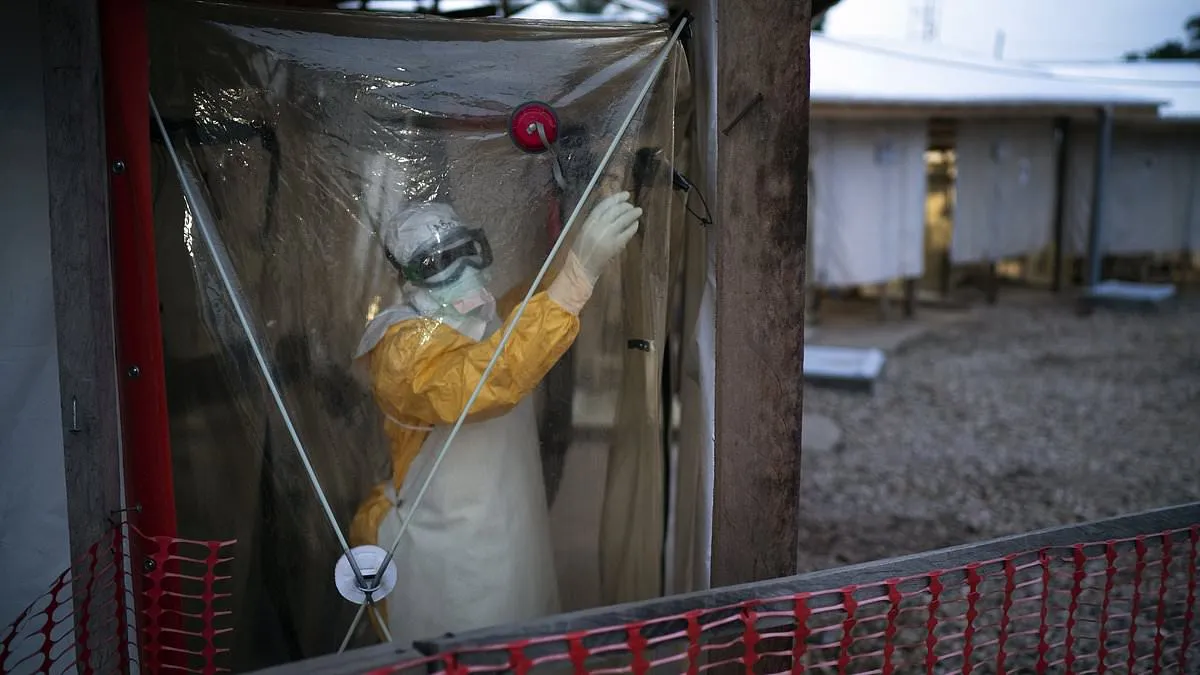
Recent reports indicate a staggering 63 percent increase in deaths linked to the ongoing Ebola crisis in the Democratic Republic of the Congo (DRC). The World Health Organization (WHO) announced on Thursday that there are currently 48 confirmed cases of the disease in the region. Despite a slight decline from last week's count of 68, this decrease is overshadowed by a grim rise in fatalities, which escalated from 19 on September 15 to 31 by September 18, including at least four healthcare workers.
WHO chief Tedros Adhanom Ghebreyesus addressed the situation, stating, "It has been two weeks since the government of the DRC declared an Ebola outbreak. So far, 48 confirmed and probable cases have been reported, and 31 people have died." Encouragingly, two patients have successfully recovered and been discharged from medical care, while another 16 individuals are currently undergoing treatment. In response to the outbreak, the WHO has dispatched 14 tons of vital medical supplies to support local healthcare efforts.
As part of the ongoing response, vaccination initiatives are being implemented in the Kasai province of the DRC, specifically targeting individuals exposed to the Ebola virus and frontline health workers. An initial batch of 400 doses of the Ervebo vaccine, which is FDA-approved for use during outbreaks, has been sent to Bulape, a current hotspot for Ebola. An additional 1,600 doses are expected to arrive shortly, enhancing the region's vaccination capabilities.
The Centers for Disease Control and Prevention (CDC) reported that there are no cases related to this outbreak in the United States or outside of the DRC, noting that the current risk of spread to the US is considered low. Ebola has had a long history in the DRC, dating back to its first recognized outbreak in 1976. This latest incident marks the 16th outbreak in the country and the seventh in the Kasai region.
Previous Ebola outbreaks in 2018 and 2020 have been particularly devastating, resulting in over 1,000 deaths each. The most extensive outbreak occurred between 2014 and 2016 in West Africa, where over 28,600 cases were reported. Local administrator Francois Mingambengele expressed grave concern, stating, "It's a crisis, and cases are multiplying."
Ebola is transmitted through contact with the blood or body fluids of an infected person, as well as through contaminated objects or infected animals such as bats or primates. Symptoms of the disease include fever, headache, muscle pain, weakness, diarrhea, vomiting, abdominal pain, and unexplained bleeding or bruising. Without treatment, the mortality rate for Ebola can reach as high as 90 percent. The current outbreak is attributed to the Zaire ebolavirus species, which is known to have a mortality rate ranging between 36 and 90 percent.
In an effort to contain the outbreak, residents in affected areas have been placed under confinement, and local officials have established multiple checkpoints along borders to restrict movement in and out of the Kasai region. Currently, there are two FDA-approved treatments for Ebola: Inmazeb and Ebanga. The first confirmed case in the DRC's current outbreak was a pregnant woman who presented at Bulape General Reference Hospital on August 20 with severe symptoms, including high fever and excessive bleeding. She tragically passed away five days later, with subsequent testing confirming the presence of Ebola.
Earlier this year, another Ebola outbreak was declared in Uganda, with 12 confirmed cases and four deaths. Fortunately, this outbreak was declared over in April. Additionally, the Sudan Virus, a rare strain that causes severe Ebola hemorrhagic fever, has raised alarm due to its severe symptoms, including bleeding from various body parts.
In February, two suspected Ebola cases were reported in the United States, involving patients who had recently traveled from Uganda. While initial concerns suggested potential Ebola infections, further tests confirmed they did not have the virus. The first confirmed Ebola case in the US occurred in 2014 when a man from Liberia traveled to the country and subsequently passed away due to the disease.
The ongoing situation in the DRC serves as a critical reminder of the need for vigilance in global health measures as the world continues to confront the challenges posed by infectious diseases like Ebola.